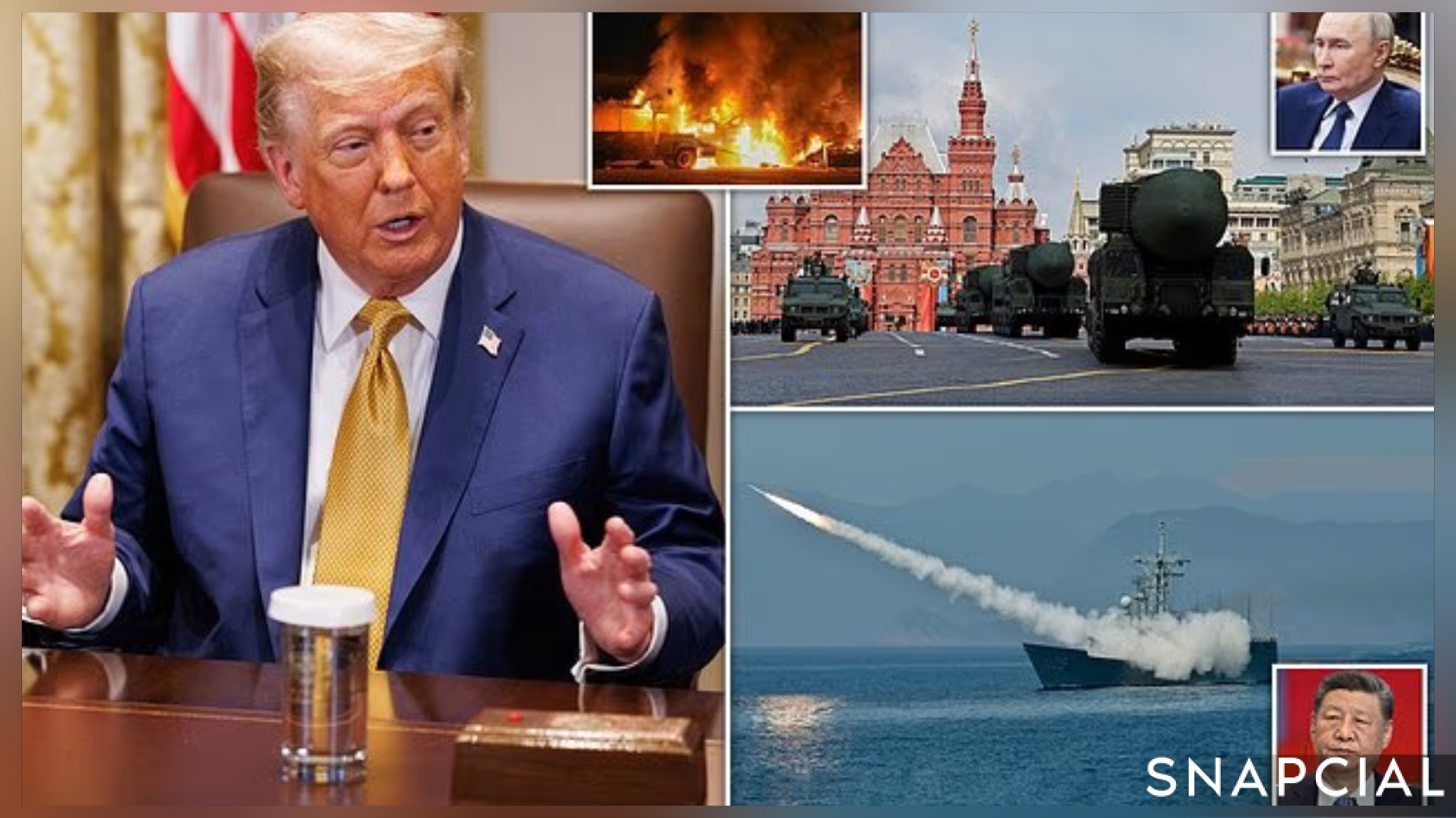NEWS
Trump ‘told Putin he’d bomb the **** out of Moscow if he attacked Ukraine and warned President Xi he’d launch strikes on Beijing if he invaded Taiwan’

Newly surfaced audio from 2024 Trump campaign fundraisers has revealed a startling piece of unilateral rhetoric: former President Donald Trump claimed he threatened to “bomb the s—t out of Moscow” if Vladimir Putin invaded Ukraine and would do the same to “Beijing” if Xi Jinping invaded Taiwan. These remarks, meant to highlight Trump’s perceived deterrent posture, have reignited debate over his aggressive foreign‑policy style.
️ What Trump Claimed
According to the recordings, Trump told donors he had once warned Putin:
“If you go into Ukraine, I’m going to bomb the sh—t out of Moscow… I have no choice. He believed me 10 percent.”
He further recounted delivering an identical message to Xi Jinping, cautioning that any move against Taiwan would trigger U.S. strikes on Beijing. Trump said Xi dismissed him as “crazy,” but “we never had a problem.” He added that even a “10 percent” credibility in such threats could prevent conflict.
Kremlin and Xi’s Silence
Russia’s Kremlin spokesman declined to verify the authenticity of the audio, calling the statements unclear and suggesting they could be fabricated. Xi Jinping’s administration has not responded publicly. This leaves uncertainty as to whether these threats were ever communicated directly or if they were part of campaign theatrics aimed at impressing high-level donors.
️ Context: Bravado or Strategy?
- Audible bravado: The vivid phrasing—“bomb the s—t out”—is in line with Trump’s signature blunt political style.
- Deterrence logic: Trump framed the threats as preventive rather than provocative, insisting that even limited belief in his seriousness was enough to deter aggression.
- Track record of escalation: Trump has previously refused to rule out nuclear weapons in interviews, showing a comfort with extreme rhetoric.
What This Means for Global Politics
- Unpredictable deterrence
Trump’s rhetoric emphasizes personal credibility over traditional diplomatic protocol or strategic alliances. - Domestic political theater
These comments, made in private fundraising settings, were likely crafted to portray Trump as a leader who doesn’t hesitate under pressure. - Allied unease
While some allies may welcome strong U.S. deterrence, such openly aggressive language could cause concern about global stability and the potential for rapid escalation.
Final Take
Trump’s audio reveals a foreign-policy philosophy rooted in personal assertiveness—fierce, unfiltered, and unapologetically confrontational. Whether these were serious warnings or high-stakes bluffing, they reflect a worldview where strength is measured by the willingness to go to the edge—and let others wonder if you’ll cross it.
As campaign season heats up, this resurfaced audio adds another dimension to Trump’s legacy and his potential return to the world stage.












